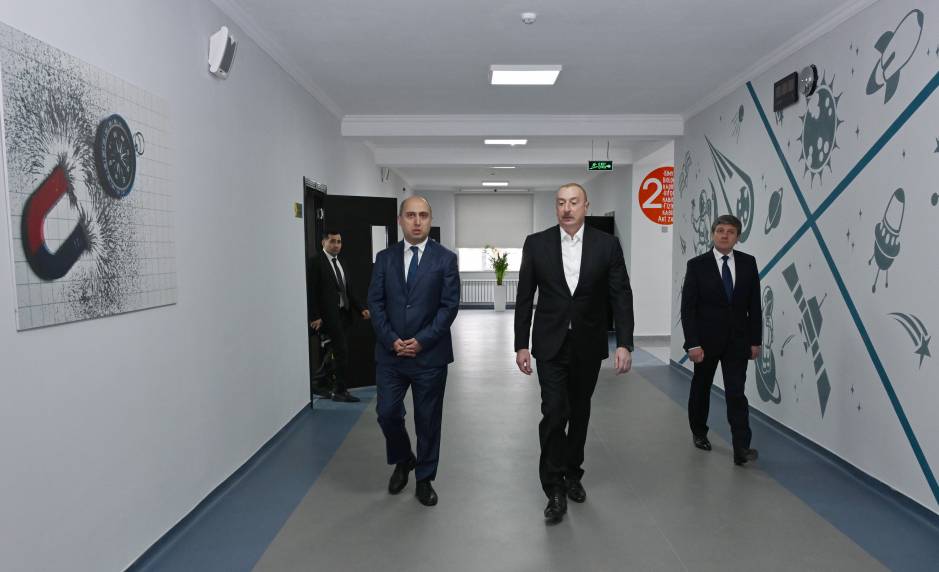14:08
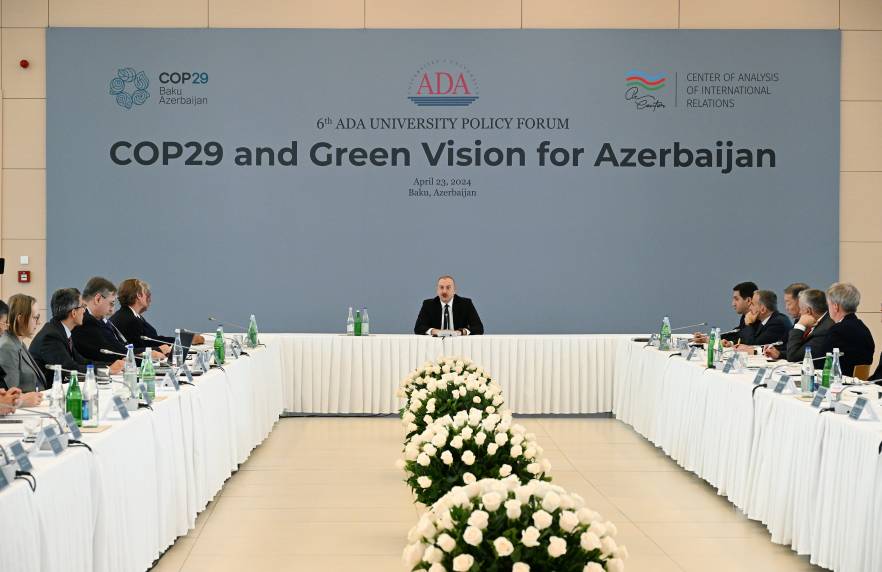
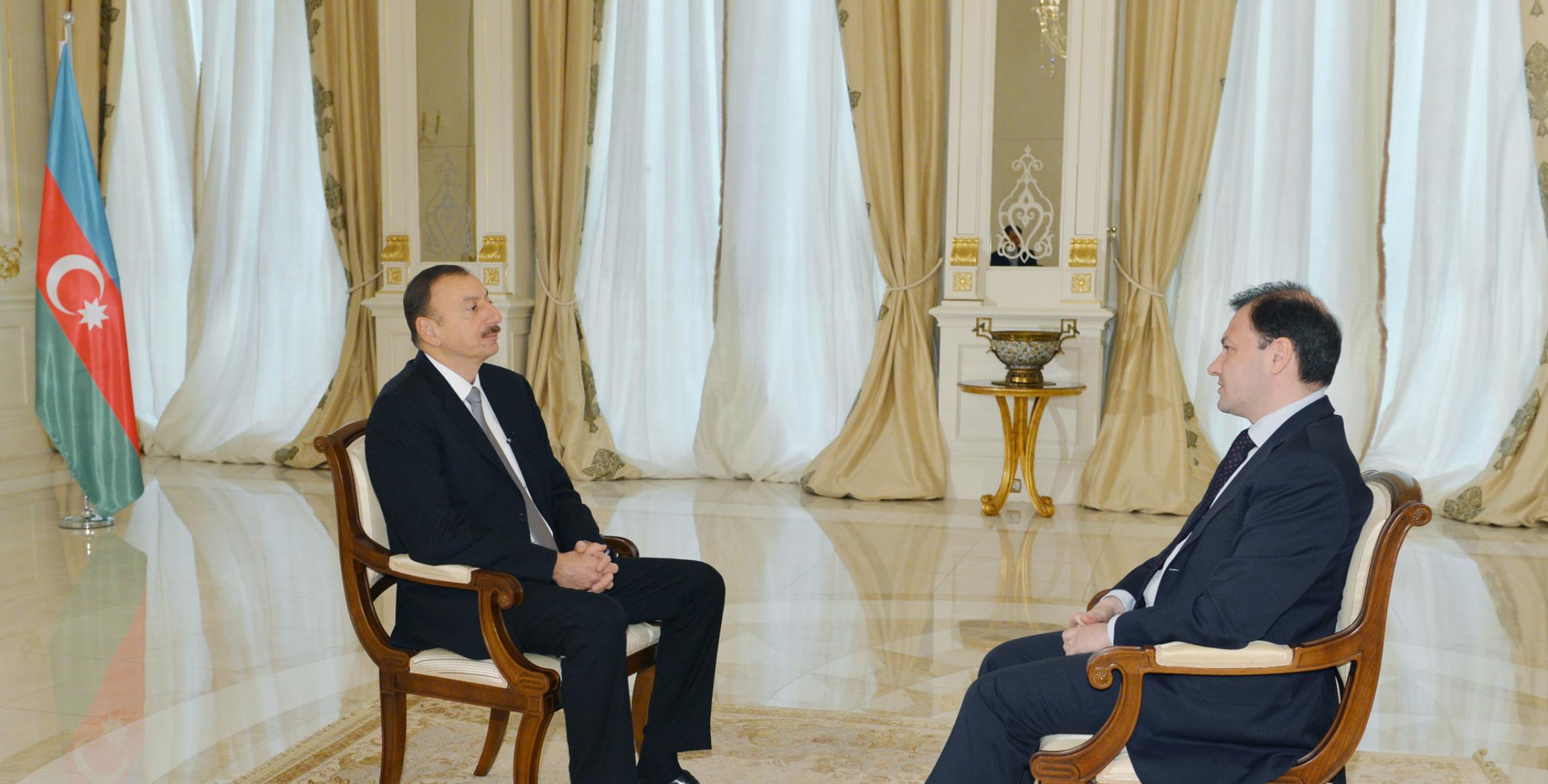
President of the Republic of Azerbaijan Ilham Aliyev has been interviewed by the presenter of the “Saturday News” program of “Russia-24” television channel, Sergey Brilev.
Sergey Brilev: A quarter of a century ago, the Soviet general secretary advocated for universal nuclear disarmament, while today it is the official slogan of US President Barack Obama. New Russia and its old friend Great Britain now see eye to eye on this issue. So has a completely different era set in after a quarter of a century? And who could be better versed in such issues than graduates of Moscow State Institute for International Relations who have made a career? "Saturday News" have asked one of MGIMO graduates - President of Azerbaijan Ilham Aliyev.
- By the end of the 1990s, there was a sense of the end of history. It was formulated by American political scientist Francis Fukuyama. It seemed that communism had collapsed and that liberal democracy was the only possible answer to all the problems of humanity. The events of the past five years show that, unfortunately, this is not exactly the case. The euro zone crisis alone speaks volumes. What new models can emerge now in your opinion?
- I think that we all had great illusions, of course. At the current stage of development there is an increasing awareness of the fact that there is no single model, as you say, liberal-democratic. It does not exist even in the countries that claim to be its authors. And the events unfolding in the euro zone and the crisis show that without government intervention and regulation it will be very difficult to achieve sustained growth. I believe that the blame for the financial crisis lies mainly on the irresponsibility of politicians who, in fact, climbed into the pockets of future generations and could not possibly imagine, and perhaps even on the contrary, what consequences this will lead to.
- Maybe it was idealism. If we take the euro, do you remember the enthusiasm of 1999?
- I think that even if there was idealism, it was not shared by those who make the final decision, but by those who saw it as the opportunity for strengthening geopolitical influence. If we look from a historical perspective, in principle, nothing has changed in world politics in the last 100 years, except for the forms of securing national or global interests. There are different forms now, while the methods of persuasion are virtually the same. If they do not work, people resort to pressure. If that does not work either, even tougher measures are taken. Nothing has changed in the world, only the shell has changed. For a while, the countries that gained their independence in the late 1990s were simply not aware of what was really going on. I think that many of those who had illusions about universal welfare and entry into some structures feel very disappointed now. There was and still is a certain stand-off over the spheres of influence. I think that some circles perceive this in a very primitive manner: a sphere of influence is where people salute you. A sphere of influence is where you feel good, where you are respected and supported.
- Where one can come to attend a forum of MGIMO graduates?
- Where one can come and feel perfectly at home.
- There is another topic that has been saved specifically for this extended bulletin on "Russia-24" television channel. How does it happen that the personnel of the Russian radar station in Gabala is leaving Azerbaijan at a time when the country is led by Ilham Aliyev, a graduate of Moscow State Institute for International Relations of the USSR Foreign Ministry?
- It is necessary to provide a little more detail in order to present the Azerbaijani point of view. The point is that the rent for the Gabala radar station was only $7 million for a territory which covers about 300 hectares in one of Azerbaijan’s most picturesque locations and the second largest tourist destination after Baku. And whereas those who live far from the sea prefer to have rest by the sea, we, who live here, by the Caspian Sea, have rest in the mountains. Therefore, our desire was to bring the rent for this facility into line with reality. First, to some extent, it could be a compensation for the last 10 years, because in the last 10 years Azerbaijan had never raised the issue of revision of prices, even though everyone understood, and I think in Russia too, that the rent, to put it mildly, was quite symbolic. At the same time, the desire to raise the rent was also justified by the fact that over the years, especially in the last five to six years, there has been tremendous progress in the military and technical cooperation between Azerbaijan and Russia. These purchases account for billions of dollars. We buy Russian military hardware at world prices.
- Of course, you are not a member of the Collective Security Treaty Organization after all.
- Of course. We believe that if we are buying goods at the world price and if we do all the other calculations at the world price, then the rent must be equal or close to that too. By itself, the Gabala radar station is of no importance to Azerbaijan, the information it provides is useless for us - we have no means of countering the information Gabala provides. So this should be resolved purely on the basis of friendly and commercial relations. We have proposed to the Russian side to continue cooperation by five or 10 years at a new price, but that suggestion was not accepted. Apparently, as we understand, this was not particularly necessary. The comments by officials of the Ministry of Defense and others suggest that Russia has a more sophisticated radar station than Gabala, which has simply become out of date, both physically and morally. In general, this is the crux of the matter. And this issue, if we do not take into account the media side, has not caused any disturbances in bilateral relations.
- The media said that the Americans pushed you to make this decision.
- This is absolutely not true. No-one can push us to do anything. The history of the recent development of regional issues, of the initiatives those you are talking about have tried to implement in the region, and our opposition to those initiatives show that no-one can force us. Especially, it is completely impossible to get us to do something against our strategic partner. Therefore, it happened exactly because of what I have said.
- Thank you very much for these explanations, they are long overdue.
- Thank you.

President of the Republic of Azerbaijan Ilham Aliyev completed his working visit to the Russian Federation on April 22.
22 April 2024, 23:13Ilham Aliyev, President of the Republic of Azerbaijan, and Vladimir Putin, President of the Russian Federation, had a joint dinner in Moscow on April 22.
22 April 2024, 20:48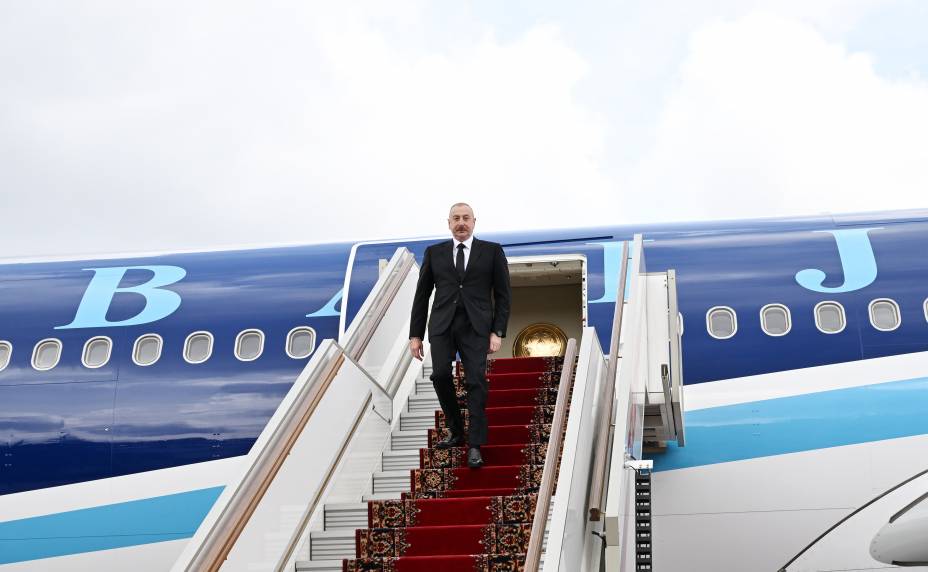
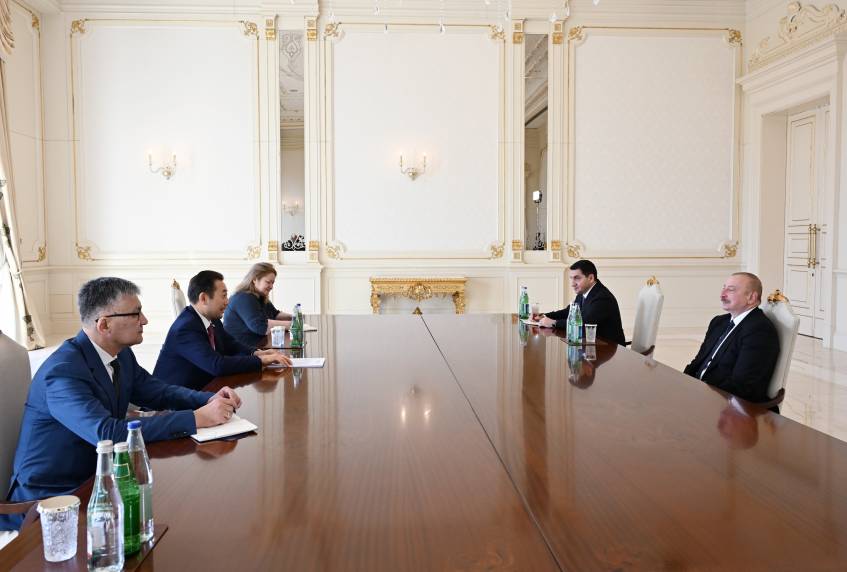
Aleksandar Vučić, President of the Republic of Serbia, made a phone call to the President of the Republic of Azerbaijan Ilham Aliyev, on April 16, briefing him on the pressures Serbia has been encountering recently and requesting the support of the friendly...
16 April 2024, 20:36Dear Mr. Pellegrini,
I sincerely congratulate you on your election as the President of the Slovak Republic.
The development of friendly relations with Slovakia holds great significance for us. Currently, there are good opportunities for enriching the...
15 April 2024, 13:06Prime Minister Muhammad Shehbaz Sharif of the Islamic Republic of Pakistan made a phone call to President Ilham Aliyev of the Republic of Azerbaijan on April 9.
Pakistan's Prime Minister congratulated the head of state on the occasion of Eid al-Fitr and wished...
09 April 2024, 19:52